11 Spices That Can Kill Dogs (Kitchen Warning)
When deciding whether or not to let your dog eat food from the table, or cook for them in general, one of the most important things to consider is their health and safety. After all, different spices can affect your canine friend – ranging from mild irritation to dangerous toxicity. With that in mind, it’s essential to know which spices can be toxic when it comes to dogs.
Some spices should be avoided entirely when cooking for your dog. For example, strong-flavored herbs like black pepper and garlic can irritate your dog’s digestive system and cause serious health problems if eaten often or in large quantities.
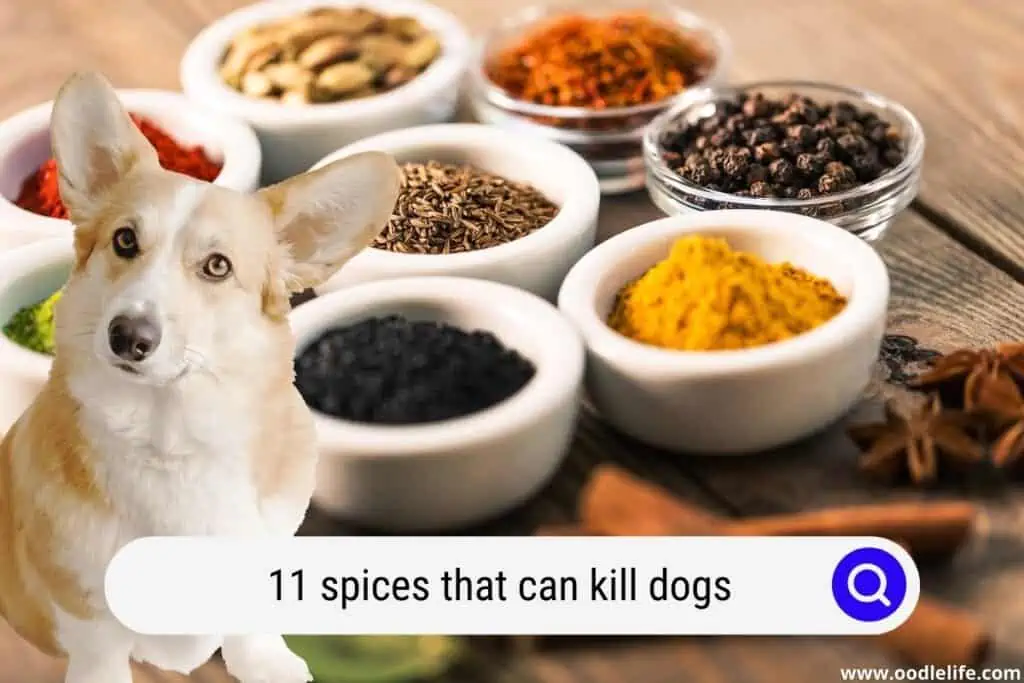
Furthermore, some spices like nutmeg can actually be toxic for dogs, so it’s important to exercise caution when using them in recipes. The bottom line is that you need to carefully consider what ingredients you use when making meals for your dog.
Spices That Can Be Toxic To Dogs
As any pet owner knows, dogs are curious creatures who love to explore everything, including food that isn’t meant for them. While most human foods are safe for dogs, there are some exceptions.
Certain spices can be harmful to dogs, and it’s essential to be aware of which ones to avoid. There are spices that can kill dogs! This list includes common spices like garlic, cloves, and nutmeg. If you’re unsure whether a spice is safe for your dog, err on the side of caution and keep it away from their food.
By being mindful of the spices in your food, you can help keep your furry friend safe and healthy.
1. Garlic
Although garlic is commonly used in cooking and for its many health benefits, it can actually be quite toxic to dogs. This is because garlic contains a compound called thiosulfate, which can cause damage to muscles, blood vessels, and red blood cells. This toxic effect can lead to organ failure or even death in severe cases.
Furthermore, even small amounts of garlic or onion can cause symptoms like vomiting and diarrhea. For that reason, dog owners should be cautious when giving their pets food that contains garlic or onions. To avoid adverse effects on your dog’s health, try limiting their intake of these compounds or consult your vet for advice.
After all, your pup’s well-being is always the most important thing!
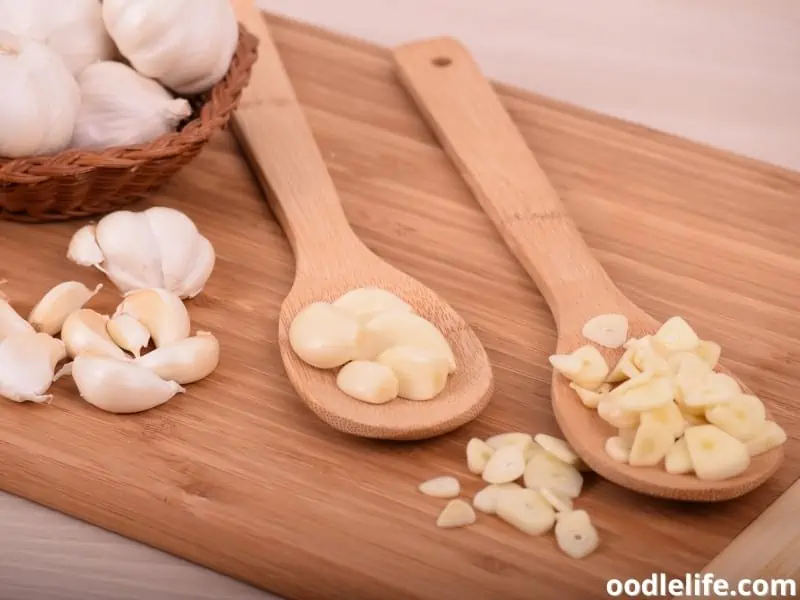
2. Marjoram
Marjoram is a popular herb that many people are familiar with, thanks to its pungent and fragrant flavor. Unfortunately, this herb can be extremely dangerous for pups, as its toxic components have not yet been precisely identified. Ingestion of marjoram can cause gastric irritation, resulting in vomiting and diarrhea in dogs.
Additionally, marjoram may lead to low blood sugar, slow heart rate, digestive blockage, respiratory discomfort, ulcers, seizures, and bleeding abnormalities such as blood clotting issues. While most of these side effects are relatively uncommon in dogs that eat marjoram, the risk is still significant enough for a trip to the vet if your pup has eaten any of this herb.
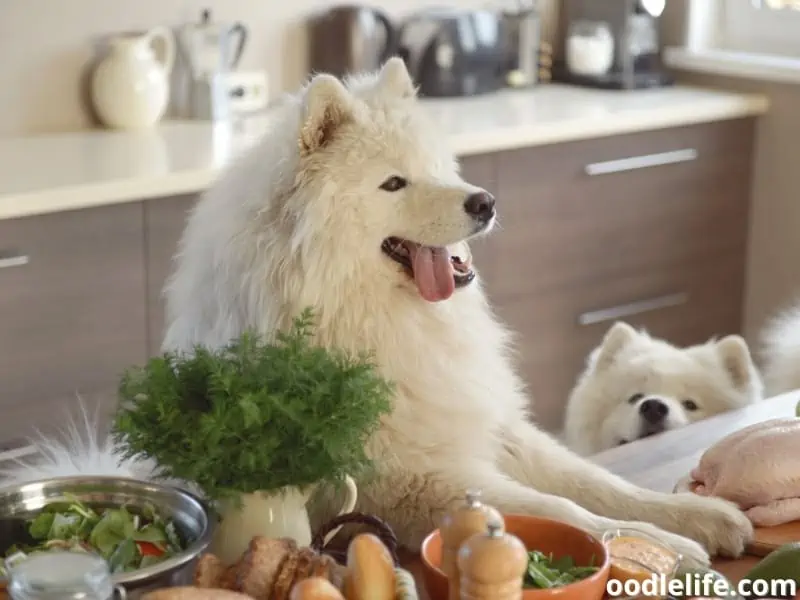
3. Allspice
Allspice, also known as pimento or Jamaican pepper, is a popular spice made from the dried berries of the Pimeta dioica plant. This flavorful spice comes from a member of the myrtle family, and all types of myrtle are toxic to dogs.
In particular, the dried berries and ground allspice contain eugenol, which can cause liver toxicity in dogs and result in serious health complications. Because of this, it is crucial to be vigilant when using allspice around pets and to keep your dog away from any plants that are part of the myrtle family.
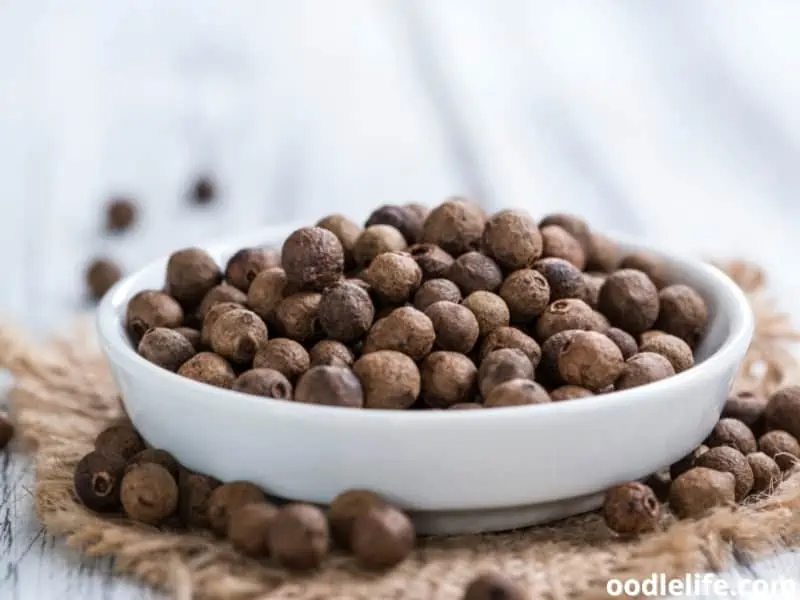
4. Bay Leaves
Many people don’t realize that Bay leaves can be toxic to dogs. There are a few reasons for this. First, they are a herb that is not easily digestible for dogs.
This means that when they eat a Bay leaf, they are at risk of experiencing digestive issues.
The Bay leaves, in particular, have sharp edges. The huge Bay leaves are capable of causing choking if your pet eats one by mistake. The sharp edges can also cause lacerations or tears to your dog’s neck and digestive system.
This will result in serious injury to the digestive system and internal bleeding.
If you suspect that your dog has eaten a Bay leaf, it is important to contact your veterinarian immediately. They will be able to provide the appropriate care and treatment for your pup.
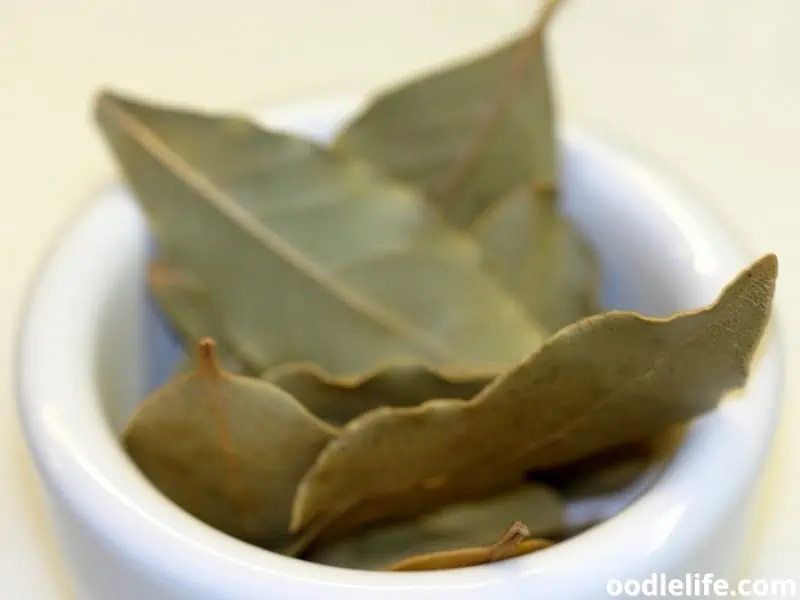
5. Cloves
Cloves are a common ingredient in many dishes, but they can be dangerous for dogs. Cloves contain a compound called eugenol, which is toxic to dogs in large doses. So if your dog eats cloves, it’s important to keep an eye out for signs of poisoning.
Vomiting, diarrhea, and lethargy are warning signs that your dog may be in danger.
If you see any of these signs, contact a veterinarian immediately. Most dogs recover from clove poisoning without any long-term effects with prompt treatment. However, if left untreated, clove toxicity can be fatal.
So if your dog has a taste for spices, make sure to keep the cloves out of reach.
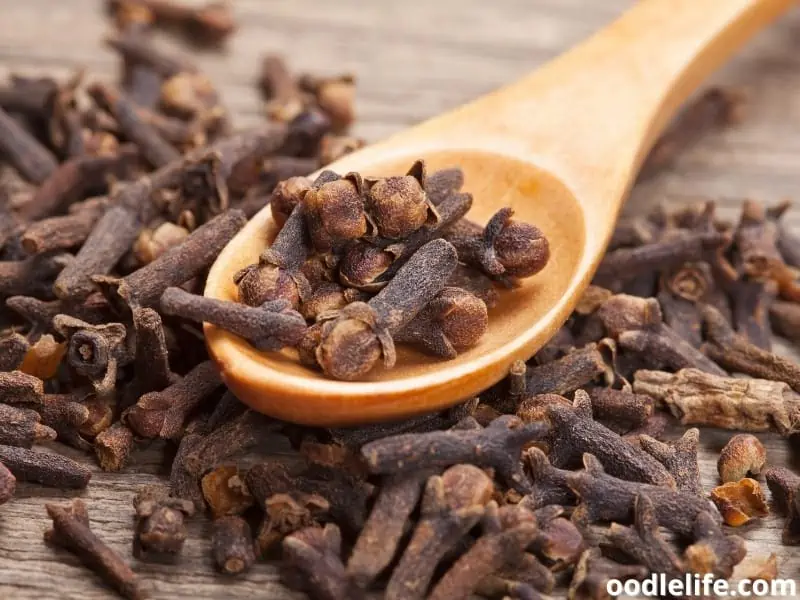
6. Cocoa Powder
Any dog owner knows that chocolate is dangerous for their furry friend, but many are unaware of the potential hazards of cocoa powder. Dry cocoa powder contains high levels of theobromine, a toxic compound for dogs.
In fact, just a few grams of cocoa powder can be potentially lethal to a small dog. Theobromine affects the dog’s central nervous system, causing vomiting, tremors, and seizures. It can also lead to arrhythmia and heart failure.
Time is of the essence when treating theobromine poisoning, and swift action could mean the difference between life and death for your beloved pet.
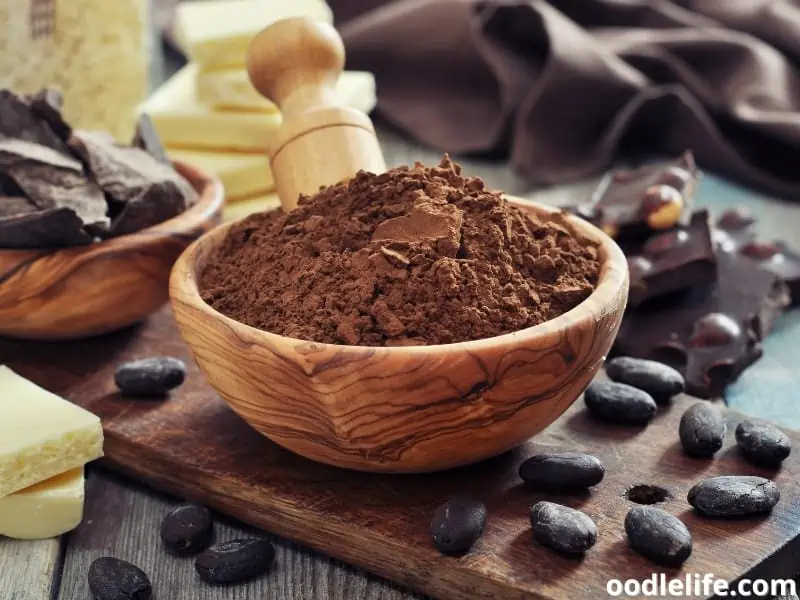
7. Nutmeg
Nutmeg is a spice commonly used in baking, but it can be toxic to dogs. Ingesting considerable amounts of nutmeg can induce dizziness, a racing heart, seizures, and hallucinations in dogs. A dog’s ingestion of a baked good containing nutmeg is unlikely to be harmful, but it should still be avoided.
Nutmeg should never be given to dogs, as even small amounts can be poisonous. If you think your dog has eaten nutmeg, contact your veterinarian immediately. Symptoms of nutmeg poisoning include vomiting, diarrhea, tremors, and seizures. In severe cases, nutmeg poisoning can lead to death.
Therefore, keeping this spice out of reach of dogs is the best way to prevent illness.
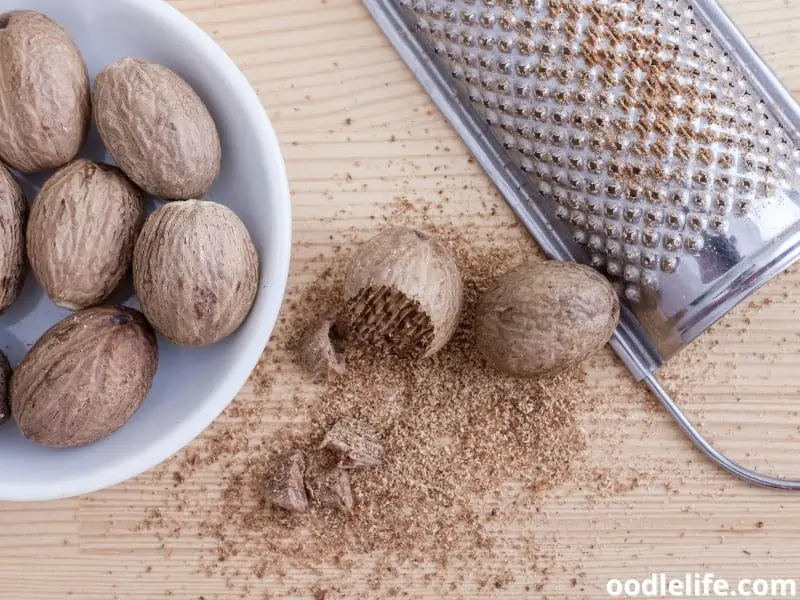
8. Onion Powder
Many people are unaware that onions are toxic to dogs, but all parts of the onion plant are poisonous to our furry friends. This includes the flesh, leaves, juice, and processed powders. In addition, onions contain a substance called thiosulfate, which is toxic to dogs and can cause anemia.
Even in small amounts, onions can cause gastrointestinal irritation and upset. In severe cases, onion toxicity can lead to liver damage and death. Cooked onions are just as harmful as raw onions, so it’s best to avoid feeding your dog any foods that contain onions or onion powder.
If you think your dog has eaten onions, contact your veterinarian immediately. Symptoms of onion toxicity include vomiting, diarrhea, lethargy, and weakness. However, with prompt treatment, most dogs recover fully from onion toxicity.
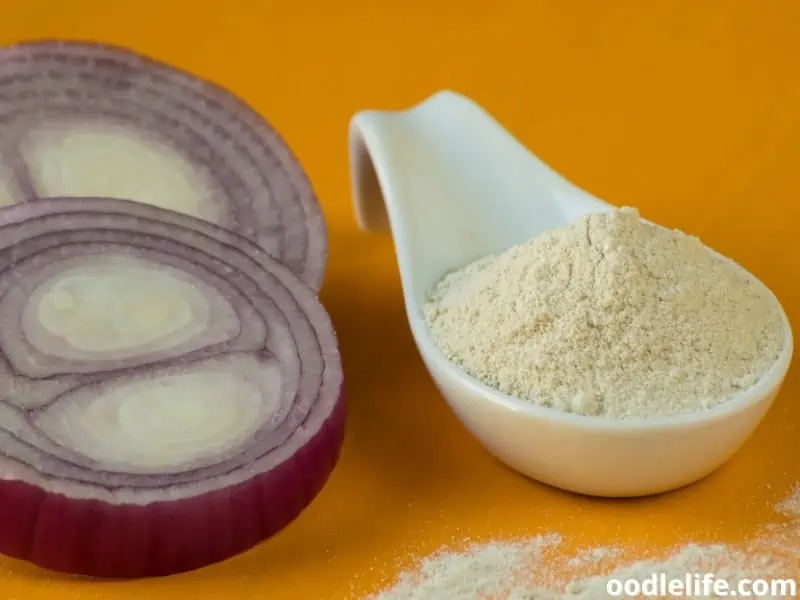
9. Curry Powder
Curry is a beloved cultural staple among humans worldwide, but it is one dish that your dog should avoid. Filled with a wide range of flavorful herbs and spices, curries can be exceptionally hot or mild, depending on the recipe.
This variety makes them extremely dangerous for dogs, as many of the ingredients in curry are toxic to them. Garlic, onions, chilies, salt, sugar, and turmeric are just some of the common components in curry, all of which can cause digestive problems and even organ damage for pups.
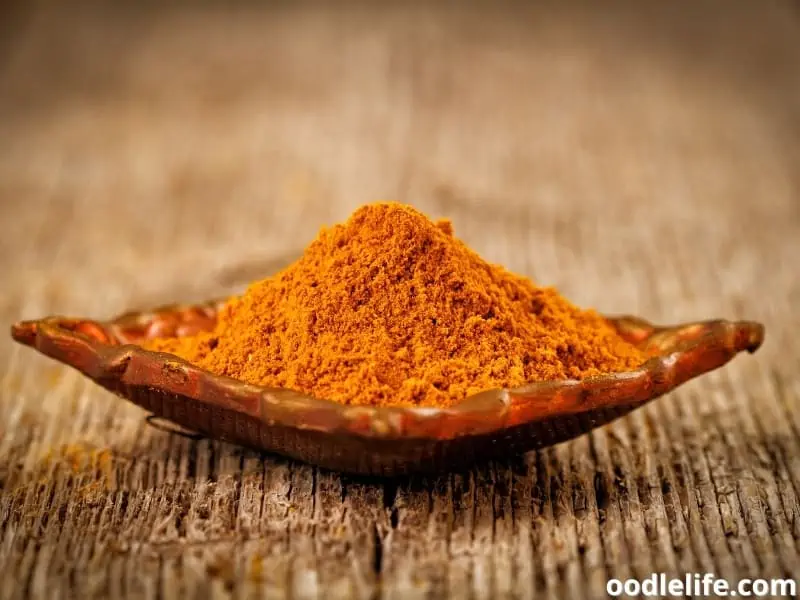
10. Vanilla Extract
It is well known that dogs can be very sensitive to certain foods and beverages, especially those high in sugar or containing toxic ingredients. For example, one food that can be dangerous for dogs is vanilla extract and flavoring. Due to the extremely high alcohol content in these products, even ingesting a small amount could put your dog at risk of severe illness or death.
Furthermore, unlike larger dogs, smaller dogs are more vulnerable to alcohol poisoning due to their smaller size and weight. Therefore, if you have a dog at home, it is vital to keep vanilla extract and flavoring out of their reach, as even just a few sips could be enough to cause them serious harm.

11. Chili Powder
No matter how much your dog loves spicy foods, it is never a good idea to let them eat chili powder. Chili powder is incredibly spicy and can cause significant gastrointestinal distress in dogs. Their sensitive digestive systems can easily be thrown out of balance by the high levels of capsaicin found in chili powder, resulting in nausea, bloating, stomach cramps, and even vomiting and diarrhea.
So whether you’re dealing with a pesky pup who just can’t seem to stay away from the spice rack or simply trying to ensure that your dog stays safe around other dogs who may be packing a little extra heat in their meals, it is important to keep chili powder away from dogs at all costs.
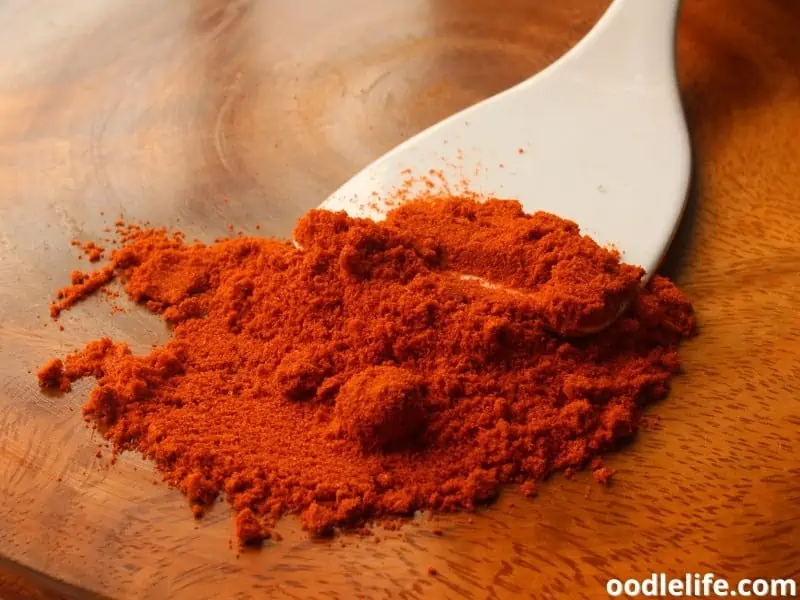
Conclusion
While many of these spices may be staples in your kitchen, it is important to remember that they can be incredibly dangerous for dogs. From gastrointestinal distress to organ damage, these 11 spices can cause your furry friend a wide range of health problems.
So the next time you cook up a delicious meal for yourself, make sure to keep your pup safe by keeping these spices away from them!